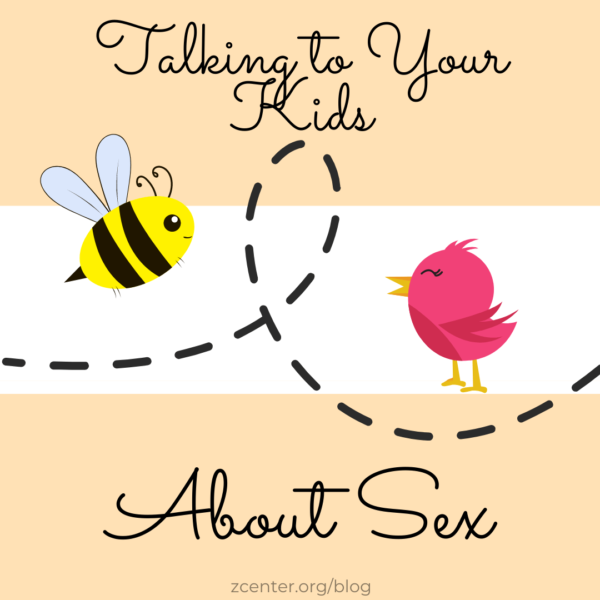The thought of sitting your child down for the “birds and the bees” conversation can be terrifying, but it doesn’t have to be and is necessary for a healthy understanding of sex. The best sex education strategy is beginning the conversation about sex early and continuing that conversation as the child grows older. This will help your children understand the body and help them feel more positive about their own body. And don’t worry, younger children are typically interested in pregnancy and babies, rather than the mechanics of sex. Here are 5 more reasons to talk to your child about sex:
- Body Positivity. Talking to your children about their bodies openly and honestly shares the message that there is nothing about their bodies to be ashamed of. Your children will more likely be happy with the body they have instead of what they don’t!
- Healthy Gender Identity. Gender is different from sex. Sex is something assigned at birth, whereas gender is something based more on how we feel. Sex Education includes conversations about gender so children can grow up understanding who they are and being okay with it.
- Recognize Boundaries. Early Sex Education will allow children to recognize what type of behavior is appropriate and what is inappropriate.
- Safer from Sexual Abuse. Learning appropriate boundaries will help children recognize unsafe situations and provide them with the confidence to disclose to a trusted adult if something negative occurs.
- Safe, Consensual Sex. Sex Education teaches children the importance of consent and provide the tools to make smarter decisions. Teaching children positive sexual values provides a framework to make good decisions when faced with the opportunity to have sex at a later age.
There are many more reasons to start the conversation now with your child about safe, positive sex. Becoming a sex-positive parent means knowing your children will grow into autonomous, sexually active adults and supporting children’ s individual sexual identities no matter what. And remember, the process of speaking to your children about sex can seem more daunting than it needs to be. If framed as a series of conversations over time you can avoid the potentially stressful or awkward singular conversation and ensure your child’s future health and safety.
Learn more:
Sex Education for Children: Why Parents Should Talk to Their Kids about Sex by SickKids Staff
Sex Positive Parenting: Rethinking the Sex Talk with Your Kids by Stacey Winconek
How to Talk to Your Kids about Sex at Any Age by Brit + Co
13 Really Good Reasons to Talk to Your Child about Sex by Cath Hakanson
The Sex-Positive Parent by Airial Clark
Written by Brigit Dunne, Grants Manager.
All ZCenter blog posts are written by state certified staff, interns, and volunteers. For questions on authorship or content, please email kjones@zcenter.org.

